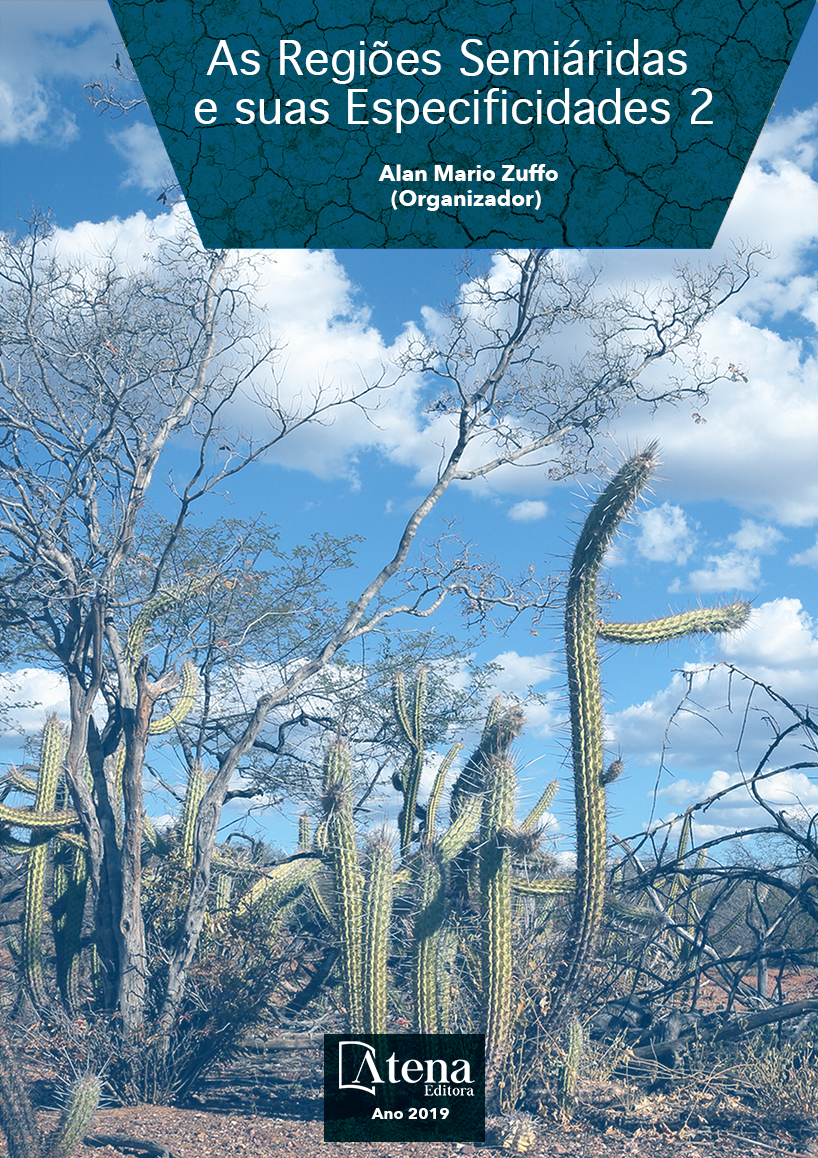
EFICIÊNCIA DE SUBSTRATOS ORGÂNICOS EM JARDINS FLUTUANTES COMO FERRAMENTA DE REVITALIZAÇÃO DE ÁGUAS POLUÍDAS
O crescimento dos centros urbanos
brasileiros tem produzido aumento significativo
da poluição das águas urbanas, em função da
ausência de uma estrutura sanitária eficiente nas
cidades. Campina Grande possui um sistema de
drenagem precarizado pela forte influência de
esgotos e das atividades de serviços prestados
na região, comprometendo a qualidade da água
de inúmeros mananciais. Dentro deste contexto,
o pequeno açude existente dentro do Campus
Campina Grande da Universidade Federal de
Campina Grande (UFCG) também apresenta
águas poluídas e malcheirosas que interferem
na salubridade ambiental e na vida de sua
comunidade usuária. A utilização de plantas
vem sendo amplamente utilizada no tratamento
de águas poluídas, tendo em vista seu potencial
de polimento, além do melhoramento estético do
ambiente aquático. Assim, o presente trabalho
objetivou avaliar diferentes tipos de substrato
orgânicos ( vagem de feijão e bagaço de canade-açúcar) em jardins flutuantes, por meio de
um modelo experimental instalado na UFCG,
que permitiu o estudo das águas do canal
situado atrás da biblioteca central, principal
contribuinte do lago situado no campus. Dessa
maneira, dos substratos orgânicos avaliados, o
bagaço da cana-de-açúcar apresentou maior
eficácia na revitalização de águas poluídas, que
a vagem de feijão, com eficiência de 27,16%
na retirada de matéria orgânica do meio, bem
como, 77,55% na turbidez, com a adsorção de
partículas finas presentes na água. Já a vagem
de feijão, por apresentar rápida degradação,
não demonstrou-se ideal à tal utilização,
apresentando eficiência de 19,75% na retirada
de matéria orgânica, e 64,29% na adsorção de
partículas finas.
EFICIÊNCIA DE SUBSTRATOS ORGÂNICOS EM JARDINS FLUTUANTES COMO FERRAMENTA DE REVITALIZAÇÃO DE ÁGUAS POLUÍDAS
-
DOI: 10.22533/at.ed.91619150315
-
Palavras-chave: Tratamento de efluentes, salubridade ambiental, fitorremediação.
-
Keywords: Treatment of effluents, environmental health, phytoremediation.
-
Abstract:
The growth of the Brazilian urban
centers has produced a significant increase
of the pollution of the urban waters, due to
the absence of an efficient sanitary structure
in the cities. Campina Grande has a drainage
system precarious due to the strong influence
of sewage and services activities in the region,
compromising the water quality of numerous water sources. Within this context, the
small reservoir within the Campina Grande Campus of the Federal University of
Campina Grande (UFCG) also presents polluted and smelly waters that interfere with
the environmental health and the life of its user community. The use of plants has been
widely used in the treatment of polluted waters, considering their potential for polishing,
in addition to the aesthetic improvement of the aquatic environment. The objective of
this study was to evaluate different types of organic substrate (bean pod and sugarcane
bagasse) in floating gardens, by means of an experimental model installed in the UFCG,
which allowed the study of the water of the channel behind the central library, main
contributor to the lake located on campus. Thus, of the organic substrates evaluated,
sugarcane bagasse was more efficient in the revitalization of polluted waters, than
the bean pod, with an efficiency of 27,16% in the removal of organic matter from the
environment, as well as, 77,55% in turbidity, with the adsorption of fine particles present
in the water. The bean pod, due to rapid degradation, did not prove to be ideal for this
use, presenting a 19,75% efficiency in the removal of organic matter, and 64,29% in
adsorption of fine particles.
-
Número de páginas: 15
- Patrícia Hermínio Cunha Feitosa
- Elis Gean Rocha
- Jasmyne Karla Vieira Souza Maciel
- Sabrina Lima Fechine de Alencar


